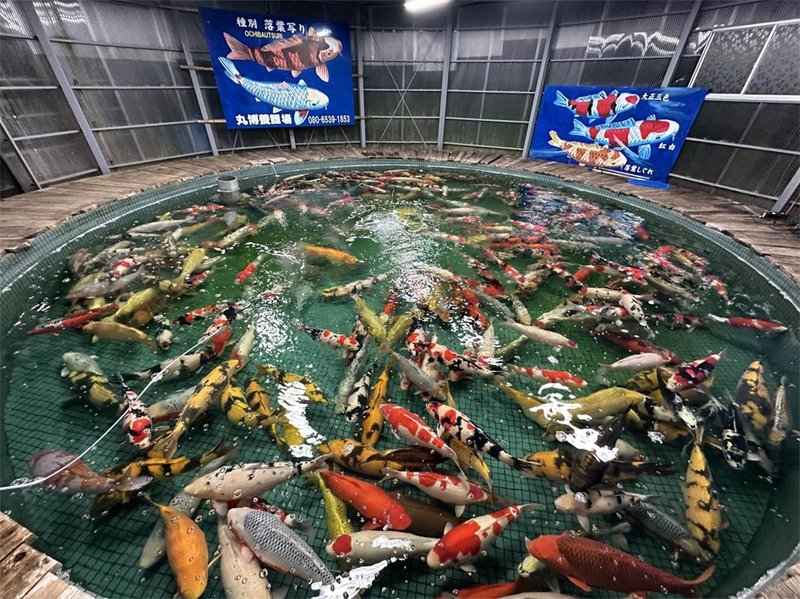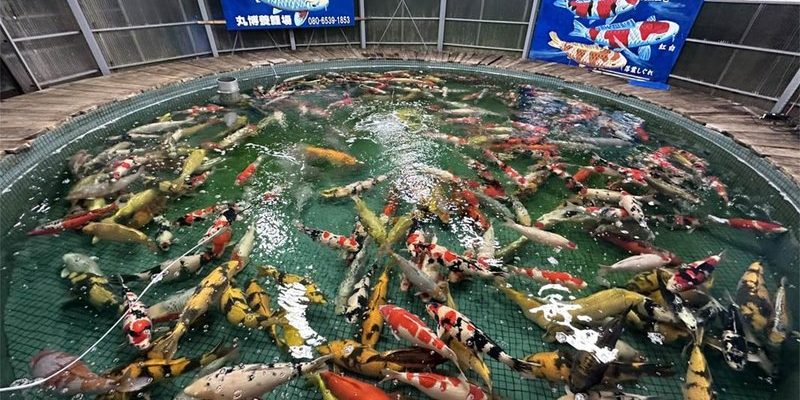
If you’re contemplating starting a koi farm or just curious about the laws surrounding it, you’re in the right place. Think of this as your guide to the many factors that can influence whether you can legally farm koi fish. From state regulations to environmental considerations, let’s break it down in simple terms.
The Basics of Koi Farming Legality
Before we dig deeper, it’s important to know that koi farming is generally legal across the United States, but specific rules can differ by state. Some states have restrictions on certain types of fish farming due to environmental regulations or concerns about invasive species. Koi, being domesticated carp, often skate under the radar in terms of restrictions, but it’s not a free-for-all.
Different states have various aquaculture laws that dictate how you can farm koi. For example, some places may require you to obtain a permit before starting your koi business. Others might have limitations on where and how many koi you can keep. Always check your local regulations before splashing into the koi farming business.
Why State Laws Matter
You might be wondering why state laws on koi farming are so important. Well, consider this: each state has unique ecosystems, and introducing non-native species (like certain types of koi) can disrupt local wildlife. That’s why some states keep a close eye on fish farming practices.
In addition to ecological concerns, regulations help ensure that farming koi is done sustainably. For example, states like California have strict water management regulations that dictate how much water you can use for farming. This is to protect local water supplies and keep ecosystems healthy. So, understanding your state’s laws isn’t just about avoiding fines; it’s about being a responsible koi farmer!
State-by-State Overview
Let’s take a closer look at a few states to give you a clearer picture of how regulations vary. This won’t cover every state, but it will highlight some significant examples.
- California: Koi farming is allowed, but you’ll need to get an aquaculture permit. The state also has regulations on managing water use.
- Florida: Koi are legal to farm here, but you must comply with the Florida Fish and Wildlife Conservation Commission’s rules, especially concerning stock and health management.
- Texas: In Texas, koi are generally unrestricted, but local municipalities may have their own regulations—so don’t skip your local check-in!
- New York: Koi farming is mostly legal, but New York also has strict rules regarding the sale and transfer of fish, especially in relation to disease control.
As you can see, the differences can be pretty significant. Always dive deeper into your state’s Department of Natural Resources or Fish and Wildlife website for the most accurate information.
Environmental Considerations
Here’s the thing: environmental stewardship is a big deal when it comes to farming koi. Different areas have unique ecosystems, and introducing koi can have unintended consequences. For instance, koi are known to disturb sediment in ponds, which can affect water quality and local fish populations.
In some states, you may need to prove that your koi farm won’t negatively impact local habitats before you can get that permit. This might involve environmental assessments or modifications to your farming practices. It’s like prepping for a big exam—you need to be ready to show that you understand and can manage your environmental responsibilities.
Best Practices for Sustainable Koi Farming
If you’re serious about farming koi legally and sustainably, consider adopting these best practices:
- Keep Good Records: Track your koi’s health and your farming practices. This creates transparency and can help if you ever need to prove your compliance with laws.
- Maintain Water Quality: Regularly test and treat your pond water. Healthy koi need clean water, and this will also help prevent issues with local ecosystems.
- Be Educated: Stay informed about local regulations and environmental concerns. Attend workshops or courses on aquaculture.
By following these practices, you’ll set yourself up for success in both the koi business and environmental responsibility.
Alternatives to Koi Farming
If farming koi seems daunting due to legal restrictions or environmental regulations, you might be wondering about other options. There are alternatives worth considering:
- Native Fish Farming: Some states encourage the farming of native fish species, which can be less regulated and more sustainable.
- Aquaponics: Combining koi farming with plant growing can create a symbiotic system that might face fewer regulations.
- Ornamental Fish: Other types of ornamental fish, such as guppies or bettas, may have less stringent farming laws.
Exploring these alternatives can open doors to new business opportunities while still enjoying the beauty of aquatic life.
So, are koi legal to farm in all states? The answer isn’t straightforward. While koi farming is generally permissible, regulations vary widely from state to state. Before you take the plunge, it’s crucial to do your homework on local laws, environmental considerations, and sustainable practices.
Koi can be more than mere pond decorations—they can be a rewarding business venture too, as long as you’re aware of your responsibilities as a farmer. With the right approach, you can create a thriving koi farm that benefits not only you but also the environment and local ecosystems. Now, go ahead and make some waves in the koi farming world, but remember to do it responsibly!

